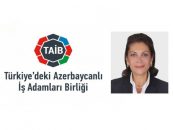Exclusive Interview With Mr. Reinhard Mitschek, Managing Director of Nabucco Gaz Pipeline Project
AT: Could you please brief our readers about the Nabucco project, its purpose and participants?
Nabucco Gas pipeline will construct a pipeline bridge between the valuable gas resources of the Caspian Region and the center of the European gas market. The pipeline will lead from tine eastern borders of Turkey via Bulgaria, Romania and Hungary to the Central European Gas Hub in Baumgarten near Vienna. The Partners within tine Consortiums are Austria’s OMV„ Germanys RWE, Hungarian MOL, Romanian Tranzgas, Bulgargaz and the Turkish Botas. First of all, the Project will contribute to secure gas supply for Europe and for the countries involved in the project. Second Nabucco will also open a new
pipeline corridor for Europe, enabling to deliver a maximum capacity of 31 billion cubic meters of gas per year from different sources. This project and its flexible structure create a win-win situation for all participants: produce is, ship pets and consumers.
AT: What could you say about Azerbaijan’s role in the Nabucco project?
Azerbaijan with its offshore Shah Deniz II gas field is without a doubt an interesting potential supply source for Nabucco. But Nabucco will also provide clear benefits for Azerbaijan’s gas business. The project enables diversification of the natural gas export portfolio and income from sales of gas and from transport and transmission business. Furthermore, Nabucco strengthens Azerbaijan’s important role as a gateway from Central Asia to Europe by transit of gas export quantities also from Kazakhstan and Turkmenistan.
AT: Russiu’s gas monopoly Gazprom has proposed to buy the whole of gas from Azerbaijan’s giant Shah Deniz field. If Azerbaijan agrees, it will have no gas left to deliver to Europe via Nabucco. What do you say about the Russian proposal? Is it more political than economic?
One USP of Nabucco is the multisource approach. That means: Nabucco offers the technical capability to transport gas from various sources – like from Azerbaijan, Turkmenistan, Kazakhstan, Iraq, Iran or Russia into the heart of the European gas-market. Nabucco is an enabling project and therefore it is attractive for the market. The pipeline leads into the gas richest region of the world and therefore we have no doubts, that there will be also enough gas for the shippers.
AT: Is there any progress on the construction of the Trans-Caspian pipeline?
As Managing Director of Nabucco Gas pipeline International 1 (..mi ml comment on other projects. But we would certainly very appreciate if this pipeline would be build.
AT: Iran has also proposed to transport its gas to Europe through Nabucco. Is the EU willing to cooperate with Iran, a country that is coming under increased pressure ewer its nuclear program? What do the Americans say to that?
This question has to be discussed and answered by politicians. I want to stress that Nabucco is an infra structure project. To be precisely: The shippers – our customers – have to decide where they would like to buy the Gas, and not Nabucco. But the huge gas reserves of Iran will be an issue for Europe in the future anyway.
AT: When will the construction work start? When will Europe receive the first gas through Nabucco?
Construction will start in 2010 and first gas will flow through Nabucco in 2013.
AT: Do you think the Caspian region and Central Asia have enough reserves of gas to meet Europe’s growing demand for gas?
The Caspian Region – as far as we know today – has enough reserves to play an important role in the future for security of gas supply for Europe. Nevertheless, all gas companies are looking to diversify their supply portfolio and it will be beneficial from a business point of view to get access to as many sources as possible.






